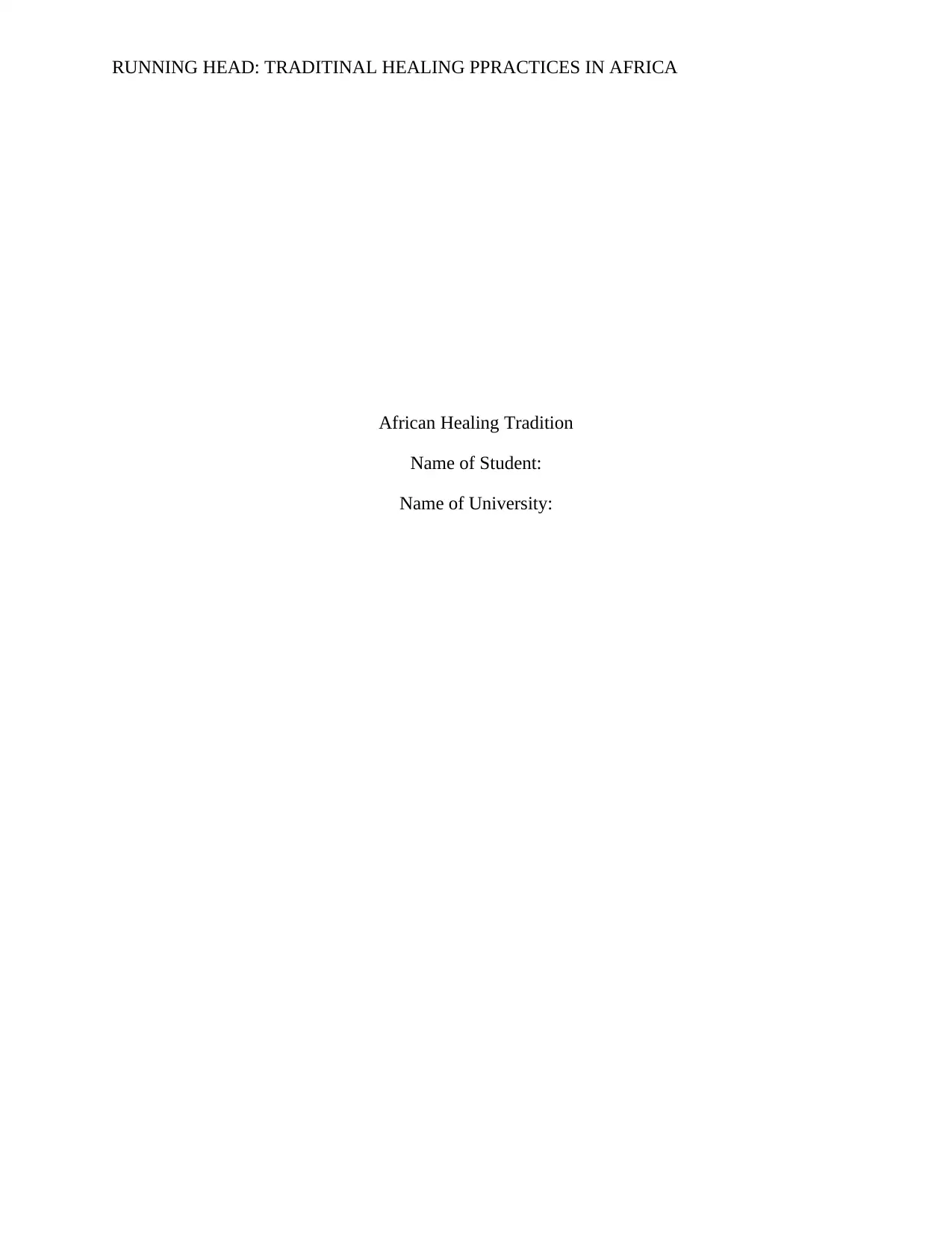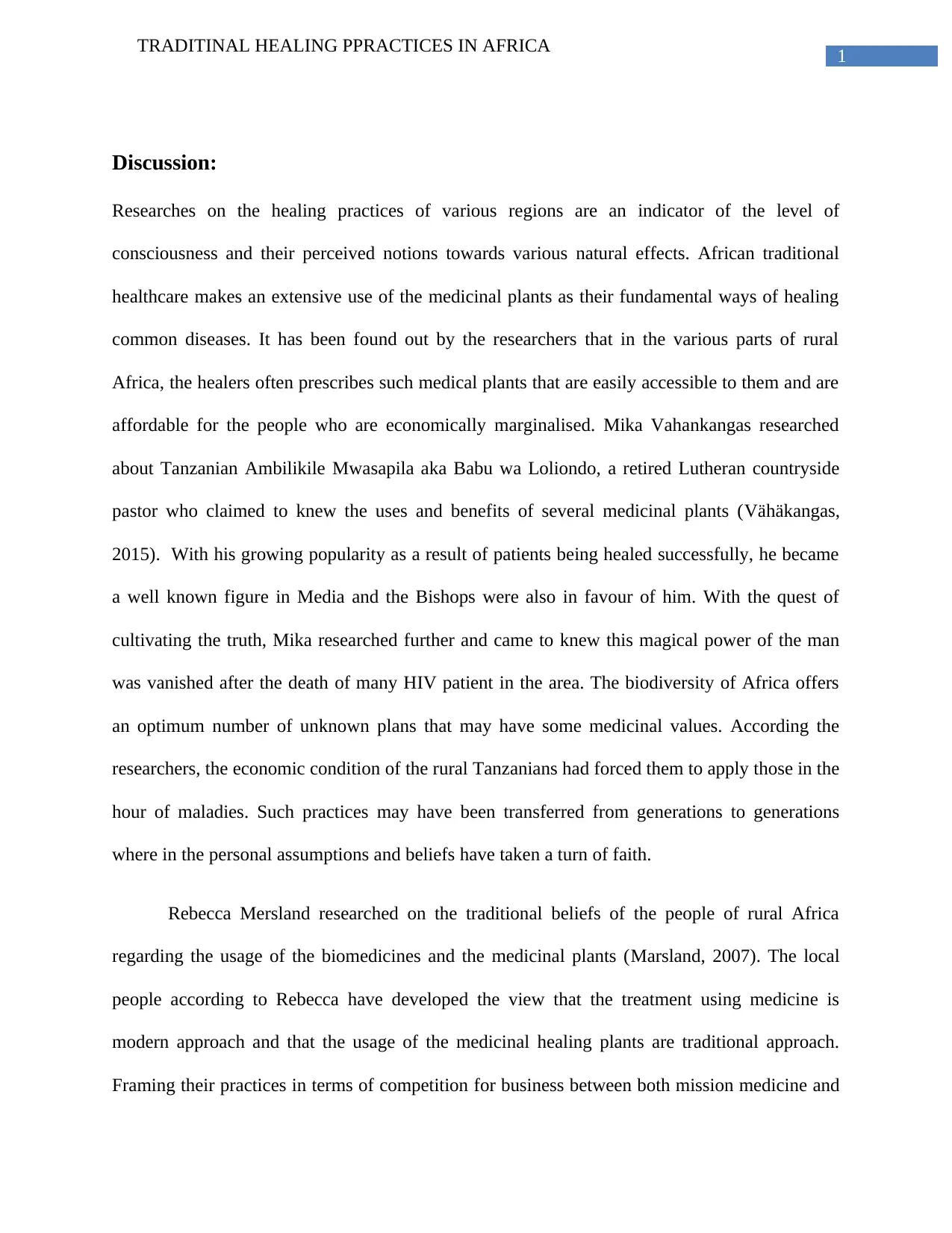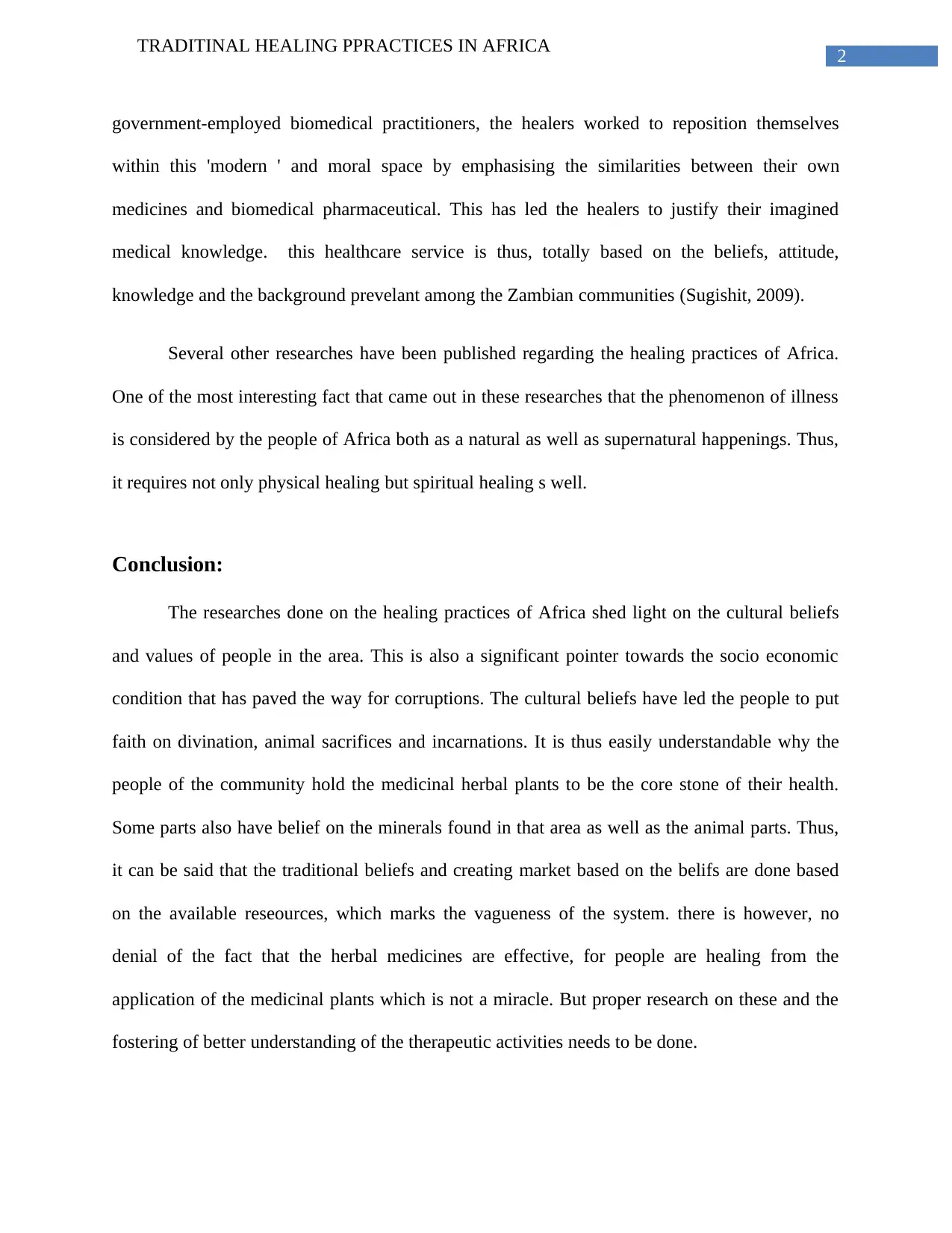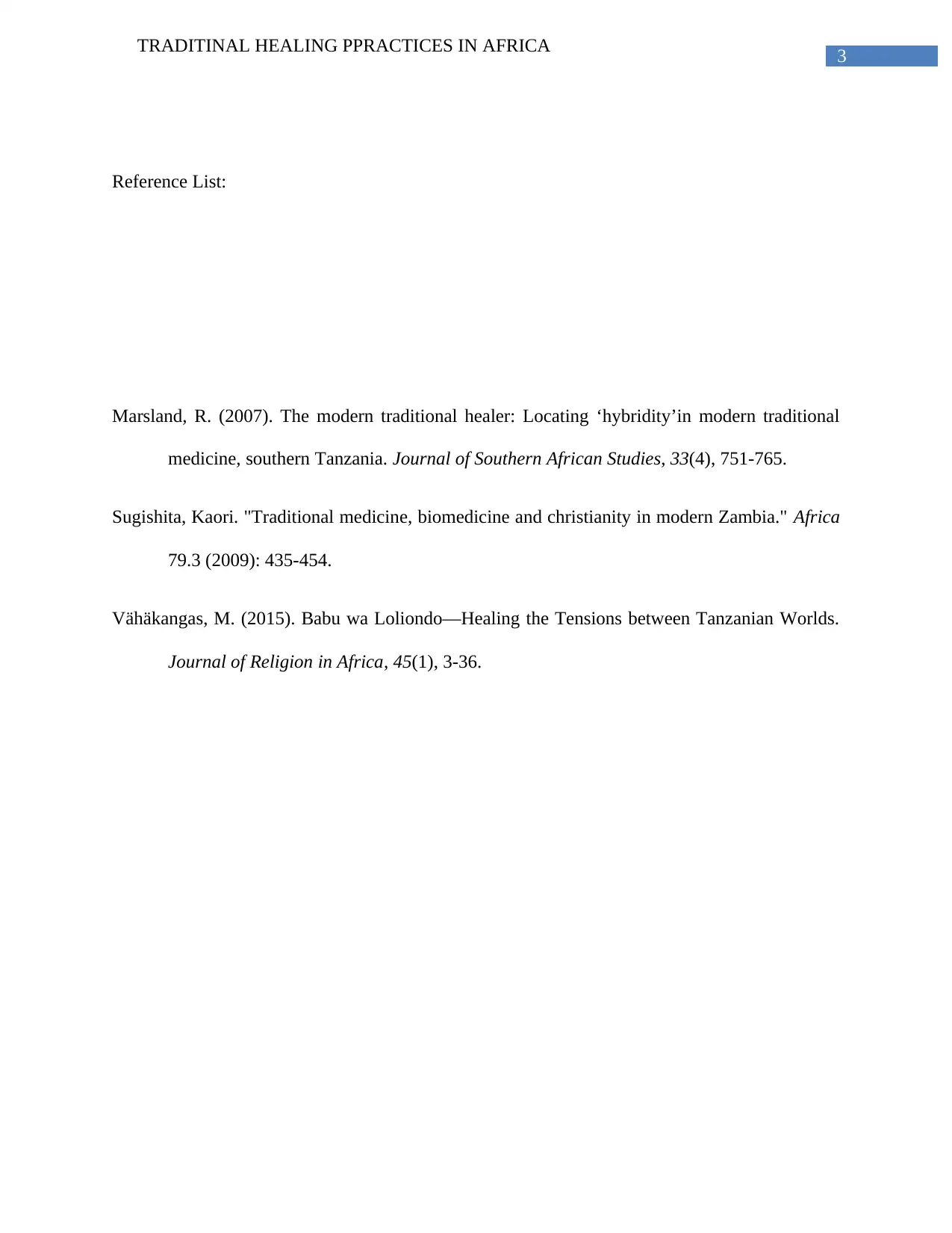Research on Traditional Healing Practices in Africa
VerifiedAdded on 2022/09/13
|4
|768
|16
Discussion Board Post
AI Summary
This discussion post examines traditional healing practices in Africa, focusing on the use of medicinal plants and the influence of cultural beliefs. It references research on the topic, including studies on the practices of traditional healers in Tanzania and Zambia. The post highlights the significance of herbal medicines and the integration of spiritual healing, alongside physical treatments. It discusses the economic and social factors that shape healthcare choices in rural communities. The post also considers the intersection of traditional medicine with biomedicine and Christianity, and the challenges faced by traditional healers. The conclusion emphasizes the need for further research to understand the effectiveness of herbal medicines and to foster a better understanding of their therapeutic activities. The assignment underscores the complex relationship between culture, health, and tradition in Africa.
1 out of 4









![[object Object]](/_next/static/media/star-bottom.7253800d.svg)